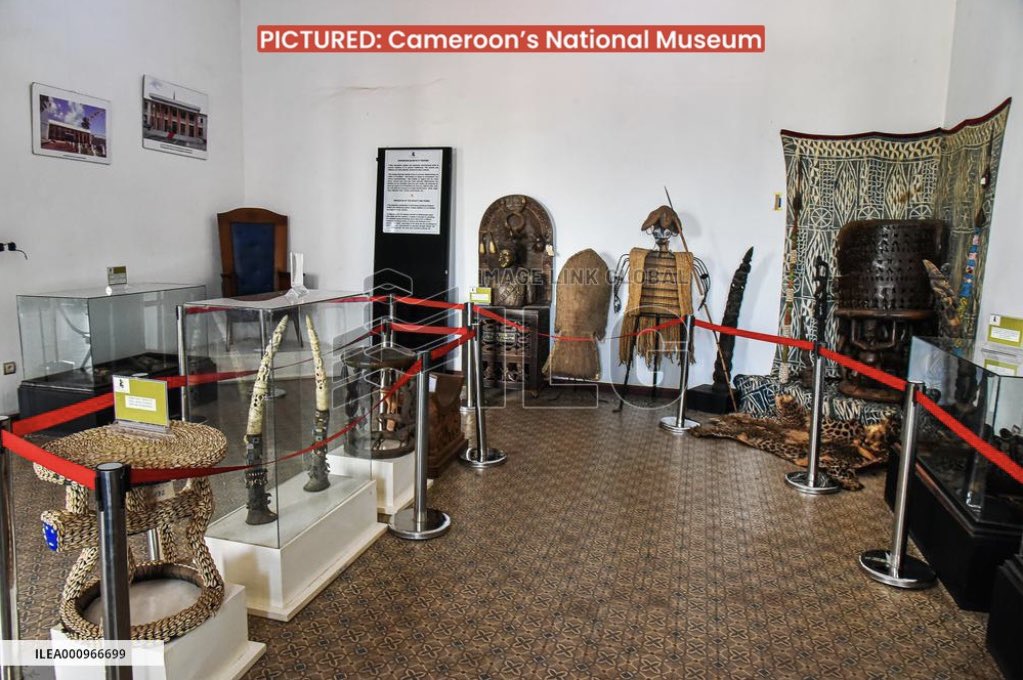MUSEUMS IN THE THIRD WORLD
How are historical artefacts looked after in the Third World? It’s true that they don’t get destroyed but very often they’re left to rot in sparse, run-down museums with flickering lights that nobody visits. On what many Third World Museums are like 🧵

How are historical artefacts looked after in the Third World? It’s true that they don’t get destroyed but very often they’re left to rot in sparse, run-down museums with flickering lights that nobody visits. On what many Third World Museums are like 🧵
https://twitter.com/mkatorin/status/1775180121256628319

Moving past the question of ‘should they be returned?’, many Westerners and Diaspora Groups agitating for returns have an skewed idea of what the Third World museums these artefacts would be returned to are actually like. They are not the same kind of museum you find in the west 

For one, the general condition of the museums; these are often in small or underutilised buildings and are empty, sparsely decorated and badly labelled. The displays are frequently poor and uninformative. The museums are often grimy and not well-maintained, have flickering lights 

Having had the opportunity to visit lots of these places, the other thing you notice is the lack of local visitors. You will be in a national museum and there will be nobody there, locals seemingly uninterested. It would be fair to say a museum-going culture doesn’t really exist 

I don’t think this is just a product of the British stealing their artefacts or being poor. My experience is a culture of ‘inquisitiveness’ doesn’t really exist in many of these places. I remember actively trying to find a bookshop in Addis Ababa and only being able to find one 

The general disrepair and emptiness, the lack of locals - it’s not obvious that many people in these countries actually care that much. Their diasporas might for identity-forming reasons but my impression is that artefacts returned to the Third World would be infrequently visited 

It’s true that museums in Asia are generally better than in Africa and that there is a lot of variation in quality depending on where you are. But these same rules generally apply, just to a lesser extent. Eg. The National Museum in Delhi, India I remember being disappointed with 

To stress again, there are lots of good Third World Museums - A lot of S. America’s pre-Columbian museums are very good, MENA museums like Tunisia’s Bardo, Qatar’s Islamic, Cairo’s Egyptian Museum (organisationally a mess inside but a lot to see). But IMO general rule still holds 

Though - even in places that do preserve heritage, you see a lot of botched restoration work. China is infamous for this, in the Silk Road countries for instance there are lots of slap-dash cement job restorations. Some restoration work is well done but a lot of it is very shoddy 

In all, a British-Nigerian or African-American living in the west might suddenly become passionate about getting an Ife Head returned to Nigeria but if it does get returned it’s unlikely to be visited or looked after as well. Maybe beside the point for activists, but the reality




To add, my other impression is that the diaspora groups care more about pushing for these kinds of returns than the people in the actual countries themselves - but YMMV 

David Frum on the Benin Bronzes being returned to Nigeria’s Lagos History Museum: theatlantic.com/ideas/archive/…


South Africa's richest family had to remove African art on permanent loan from a Johannesburg gallery because it was not being take care of

https://twitter.com/soetsappies/status/1775550782886105289

• • •
Missing some Tweet in this thread? You can try to
force a refresh



























